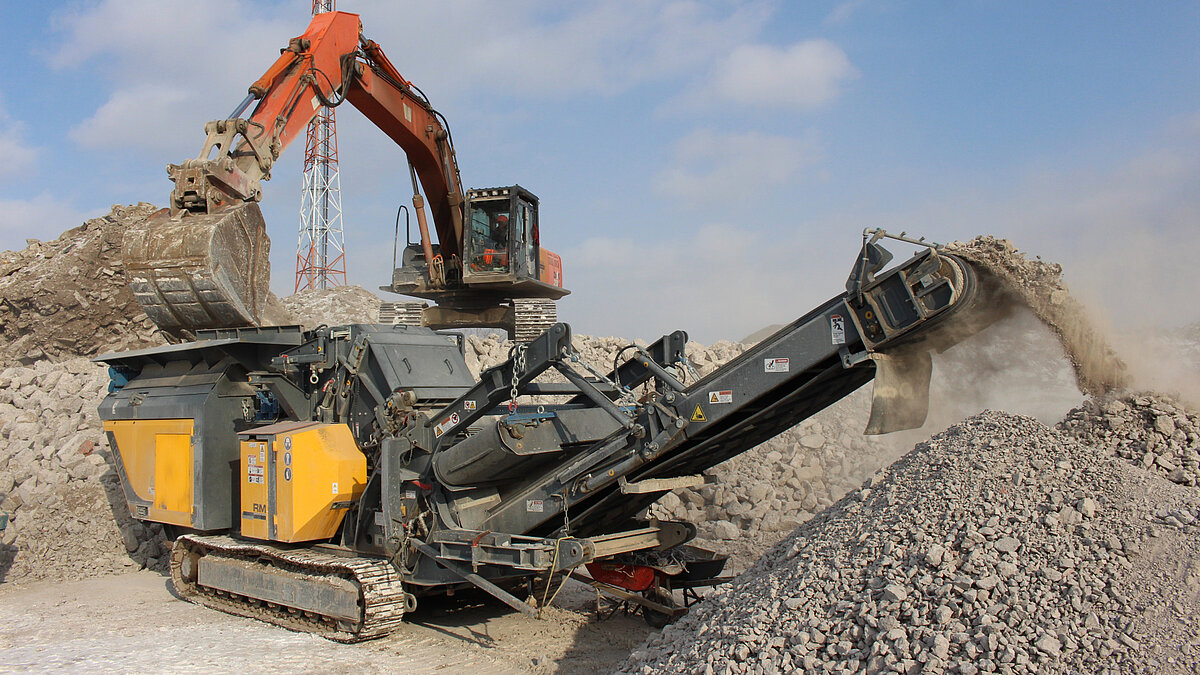Mobile Crusher vs Portable Crusher
Understand the differences between a mobile and a portable crusher. There is no better or worse type machine but the right tool for your application.
When it comes to crushing, flexibility and efficiency are key. Mobile crushers are designed with those priorities in mind, giving contractors, recyclers, and aggregate producers the ability to crush material exactly where and when it’s needed. Unlike traditional setups that stay in one place, mobile crushers are track-mounted and self-propelled, making them easy to move across jobsites or even reposition onsite with minimal effort. This adaptability translates into faster setup times, less downtime, and more opportunities to take on diverse projects.
Both types of crushers are valuable in the right setting, but mobile crushers bring an added level of flexibility and efficiency that can transform your crushing operation.
With mobile crushers, relocation is straightforward. A unit can be delivered on a lowboy trailer and is ready to work with minimal setup. Even during a project, the crusher can track closer to the material pile, reducing loader travel time and keeping production flowing.
Portable crushers, while movable, take more planning. They may require multiple loads for transport and additional setup time, making them ideal for projects where the equipment stays in one place for extended periods. In comparison, mobile crushers provide the freedom to react quickly as jobsite conditions change (e.g. back up closer to the material or move to a different material pile).
Without mobility, you...
Mobile crushers excel at handling both large and small jobs. Their compact footprint makes them a natural fit for tight urban projects or short-term work, but they’re also capable of tackling demanding aggregate production. This versatility allows contractors to expand their range of services and capture more opportunities.
Portable crushers thrive in high-volume, consistent environments such as quarries. Their larger designs often feature wide feeders and multi-deck screening plants, making them powerful tools for steady, long-term production. The burden associated with moving portable equipment results in higher indirect spending associated with trucking, labor, and setup. These additional costs must be absorbed before profits are generated. Therefore, you need more tonnage to compensate for additional costs.
Without the ability to do also smaller jobs, you ...
A mobile crusher is a self-contained system, requiring little extra equipment to get started. Because everything is built into a single track-mounted unit, the setup is faster and the overall footprint smaller—an important advantage on crowded or space-limited jobsites.
Some portable crushers require additional portable screening plants and transfer and discharge conveyors. This takes up more space on the job and makes it difficult to setup on certain jobsites. While this doesn't matter in a wide-open quarry it can be a burden on a tight jobsite.
Without a compact operation you...
Today’s mobile crushers are designed for easy access and straightforward maintenance, even with their compact layouts. That means everything fits in between 2 tracks that fit onto a lowboy trailer. Hydraulic folding, swing-out components, and ground-level service points reduce downtime and make daily upkeep safer and faster. Learn how a maintence routine looks like on a Rubble Master Mobile Impact Crusher.
Portable crushers, with their larger, more open structures, offer generous access to components and space to work. However, operators often deal with longer climbs and bigger travel distances around the plant. For many contractors, the efficiency of mobile crusher design brings significant day-to-day benefits. Often featuring larger feeders, wider conveyors, and large on-board screening plants with 2 or 3 screen decks, they allow operators to produce multiple products simultaneously. This translates to a large throughput capacity.
Without a open design and short paths, you...

Nathan Henrich with Flatrate Inc runs a concrete pumping and crushing business out of Big Stone, SD. He initially started with a large portable crushing plant. He realized that he was held back crushing concrete because the piles were not stockpiled in convenient places such as a large open pit. Therefore, he switched to the RM 120X Mobile Impactor to gain the freedom to do more jobs and bring the crusher to the material vs. the material to the crusher.
Nathan Henrich, Flatrate Inc.